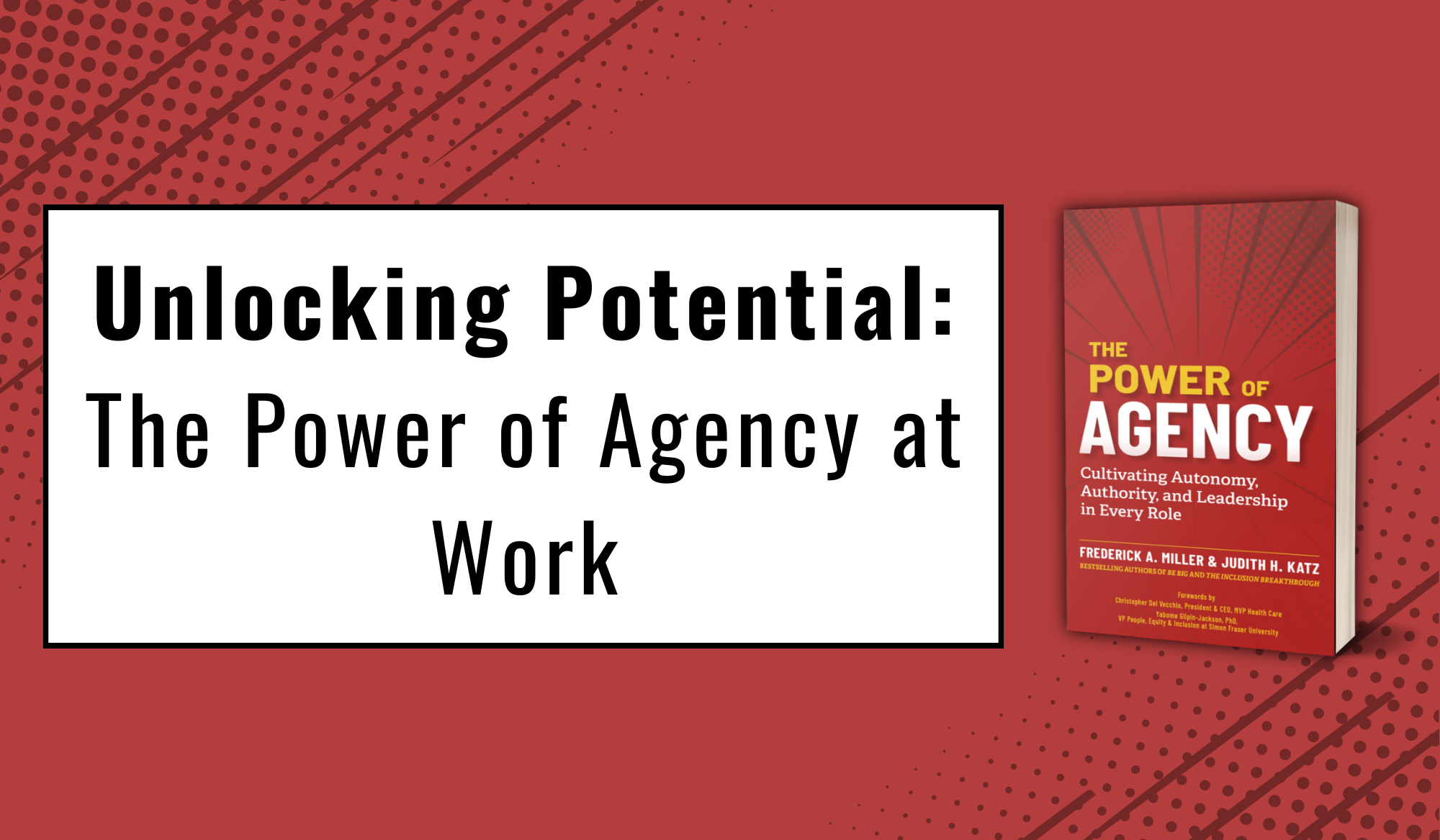There’s a lot to admire in some of this year's most notable college commencement speeches. But while these speeches can certainly fill you with hope—hope for the country, hope for the future, and hope that celebrities can also be critical thinkers—many can also serve as models of effective communication by demonstrating the imperative of grounding your messages in real points. That’s a lesson everyone can use, whether you’re speaking to hundreds of graduates or a handful of colleagues.
You may think all speakers have points, but that’s incorrect. All speakers have words. But the most effective and memorable communicators identify and champion a clear argument, often with actionable recommendations for audience response. If done well, this point can be boiled down to a single sentence—not just by the speaker, but most importantly by the audience.
What does a presentation without a point look like?
You’ve seen them time and time again: presenters who ramble aimlessly, run through laundry lists of dos and don’ts, and are so nonspecific that their presentations have all the impact and resonance of fortune cookie proverbs.
These presenters don’t fail because they’re “bad public speakers” who can’t deliver their points; they fail because they likely never had true points to begin with.
The best points made by 2018 top commencement speakers
The good news is that many of this year’s commencement speakers identified and conveyed real points. You may not agree with them, but they were well-developed. How do we know? Because one can easily extract and restate those points as I’ve done with nine commencement excerpts below.
Sit back, enjoy, and hopefully learn a thing or two from these commencement bites—without the discomfort of folding chairs and the sun in your eyes.
Chimamanda Ngozi Adichie at Harvard University
“Above all else, do not lie. I grew up in Nigeria through military dictatorships and through incipient democracies. And America always felt aspirational. When yet another absurd thing happened politically, we would say, ‘This can never happen in America.’ But today, the political discourse in America includes questions that are straight from the land of the absurd. Questions such as, ‘Should we call a lie a lie? When is a lie a lie.’ And so, class of 2018, at no time has it felt as urgent as now that we must protect and value the truth.”
What's the point?
It’s vital to protect and value the truth, so don’t tolerate lying.
Ngozi makes excellent use of a very personal story, but she can develop even further the societal value of telling the truth, not just the problems with lying. It’s a speaker’s burden to make a strong case for every point, even if it seems true on its face.
Justin Trudeau at New York University
“I think we can aim a little higher than mere tolerance… Saying ‘I tolerate you’ actually means something like, ‘Ok, I grudgingly admit that you have a right to exist, just don’t get in my face about it, and oh, don’t date my sister.’ There’s not a religion in the world that asks you to ‘tolerate thy neighbor.’ So let’s try for something a little more like acceptance, respect, friendship, and yes, even love. And why does this matter? Because in our aspiration to relevance, in our love for our families, in our desire to contribute, to make this world a better place, despite our differences, we are all the same.”
What's the point?
It’s critical that we respect, not just tolerate, eachother.
Trudeau makes his point brilliantly using simple language with a touch of humor, then elevates it by explaining the relevance of showing respect versus showing simple tolerance. Note how he uses the words “And why does this matter?” to reinforce the relevance of his point. Consider using verbal shortcuts like that in your own communications.
Abby Wambach at Barnard College
“[There] was a picture that someone had taped next to the door so that it would be the last thing every player saw before she headed out to the training pitch. You might guess it was a picture of their last big win, or of them standing on a podium accepting gold medals. But it wasn’t. It was a picture of their long-time rival, the Norwegian national team celebrating after having just beaten the USA in the 1995 World Cup. In that locker room, I learned that in order to become my very best—on the pitch and off—I’d need to spend my life letting the feelings and lessons of failure transform into my power. Failure is fuel. Fuel is power.”
What's the point?
Failure can be a powerful tool for success if you allow it to inspire you.
Wambach perfectly employs a personal memory to illustrate a specific point. I would expect her next to offer practical recommendations on how her audience can turn “failure into fuel.” The takeaway for you: Remember that saying “do this” is always best followed by “how” and reinforced by “why.”
Rex Tillerson at the Virginia Military Institute
“Maintain and protect who you are, and remember that being a person with integrity is the most valuable asset you have. Don’t ever let anyone take it from you. Carefully consider the values and the culture of the organizations in which you seek to work. Look for employers who set high standards for personal conduct and who reward ethical leadership. Identify mentors who exemplify integrity and leadership excellence. Developing as a leader largely comes from also practicing good followership.”
What's the point?
A good leader preserves his integrity by surrounding himself with those who exemplify integrity.
Tillerson sticks with the idea of integrity throughout in very digestible short declarative statements, then offers clear suggestions like practicing “good followership”. Note that he didn’t borrow a quotation to make that last point —he relied on his own credibility. Too many speakers end with a quotation when they’re much better off making the point themselves, and are fully qualified to do so.
Hillary Clinton at Yale University
“Our country depends on every citizen believing in the power of their actions—even when that power is invisible and their efforts feel like an uphill battle—[and] on every citizen voting in every election, even when your side loses.”
What's the point?
Believing in the power of your actions is critical to the progression of our country.
Given Clinton’s history, this packs a lot of power into a single sentence, conveying both the urgency and the encouragement to persevere. Often, Clinton uses very sophisticated rhetoric as if her speech was designed to be read by historians, not heard by the masses, but note the impact of her using very simple language here. Consider this if you’re giving a very technical or detailed presentation—as with food, the simplest offerings are the easiest to digest.
Sen. Jeff Flake at Harvard Law School
“If you find yourself in a herd, crane your neck, look back there and check out your brand, ask yourself if it really suits you. From personal experience, I can say that it’s never too late to leave the herd. When you peel off from the herd, your equilibrium returns. Food tastes better. You sleep very well. Your mind is your own again. You cease being captive to some bad impulses and even worse ideas.”
What's the point?
Resisting following the herd blindly will result in more fulfillment and success.
Everyone knows Flake is in a unique position as a Republican very critical of the president, and he leverages that distinct perspective to reinforce the credibility of his insight. Always consider your most unique perspective and how you can leverage it to make a more compelling point. If your presentation can be given the same way by a dozen other people, it probably isn’t tailored enough to your particular point of view.
Jake Tapper at the University of Massachusetts, Amherst
“I had to be so skilled and tough and industrious and vigilant that, if my bosses at ABC News made anyone else the White House correspondent, they would look like idiots. I had to force them to give it to me out of their own best interests… . Have something that they want. And show it to them—over and over, every day. Make them need you. Work twice as hard as the job requires. Make sure they know that you will show up and act like a professional, that you don't feel entitled to anything. Make them hire you for their own good, not yours.”
What's the point?
Making yourself vital to your employers will open doors of opportunity.
Tapper makes a very specific and practical point, encouraging the graduates to not just “do their best” or “persevere through challenges," but take every opportunity to make themselves invaluable to their employers. He also contextualizes the lesson by sharing his own learning experiences. In this way, his address is unique, impactful, and memorable. Audiences love personal stories, so always consider using experiences you’ve had that may effectively illustrate your idea.
Oprah Winfrey at the USC Annenberg School for Communication and Journalism
“You will become the new editorial gatekeepers, an ambitious army of truth seekers who will arm yourselves with the intelligence, the insight, and the facts necessary to strike down deceit. You are in a position to keep all of those who now disparage real news… . You all are the ones who are going to keep those people in check. Why? Because you can push back, and you can answer false narratives with real information. And you can set the record straight. And you also have the ability and power to give voice… to people who desperately now need to tell their stories and have their stories told.”
What's the point?
You are uniquely able to defend truth and tell vital stories.
Oprah’s point is very targeted to journalism and communications students, which is smart, but she also elevates from describing the potential of their influence (“You are in a position to…) to suggesting how they can specifically wield that influence (“You can push back…answer false narratives… set the record straight”). Know that only part of Oprah’s formula success is simply being Oprah; the rest are the decisions she makes in her communications that you can and should emulate.
What's the point...of this post?
Whether you have an important upcoming presentation or simply want to sharpen your messages in day-to-day communications, always leverage the power of a strong point—your success or failure may depend on it.
To improve your skills, scrutinize other presentations in your organization, paying close attention to not just what speakers say, but what they choose to say and how they choose to say it. Did you get their point?
Pro tip!
When you practice presentations in front of your team. Don’t ask, “Was it good?” or “What would you change?” Ask, “What point do you think I was trying to make?” If they hit the nail on the head or come very close, you succeed. If they can’t articulate your point back to you, then rework the presentation until your point is crystal clear and delivered like a diploma.
Joel Schwartzberg is the Senior Director of Strategic and Executive Communications for the ASPCA and author of the recently-released Get to the Point! Sharpen Your Message and Make Your Words Matter. A former national champion public speaker, Joel has been training corporate and individual clients to communicate more effectively since 2006.




